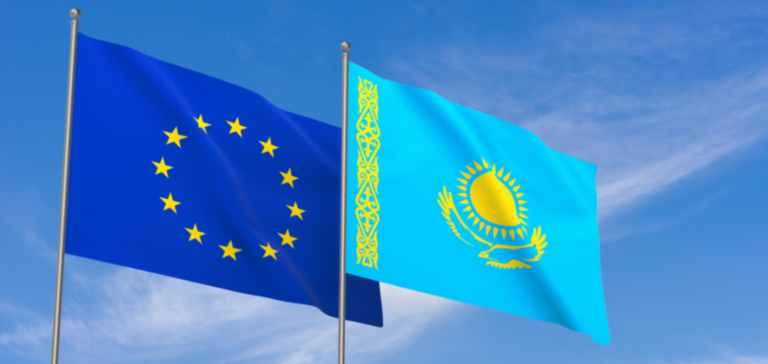The European Union (EU) and Kazakhstan have just concluded a strategic partnership agreement on the occasion of the COP27. It focuses on a secure and sustainable supply of raw materials and refined materials. The ambition is also to develop the renewable hydrogen and battery value chains.
An agreement on raw materials
The partnership between the EU and Kazakhstan ensures a secure supply of raw materials, refined materials and renewable hydrogen. This requires a reinforced economic and industrial integration in the strategic value chains of these resources. The identification of common projects and the alignment of environmental standards will be areas of work to move towards greater integration.
The cooperation also focuses on the resilience of supply chains for raw materials, batteries and renewable hydrogen. In addition, cooperation will be strengthened in the areas of research and innovation, as well as skills. Particular attention will be paid to decarbonizing the value chain of critical raw materials.
The objective of the partnership between the EU and Kazakhstn also lies in the sustainability of mining processes. The next step will be the development of a roadmap for 2023-2024. It will present joint collaborative actions with the industrial and financial players concerned.
A strategic agreement
This agreement is essential for Europe to achieve its green energy goals. A guaranteed supply of raw materials is a prerequisite for the transition. The agreement with Kazakhstan is in line with the strategic partnerships on raw materials.
Critical raw materials are an essential link in the European transition strategy. They are needed for the deployment of wind turbines, the production of batteries and semiconductors. Batteries themselves are essential to the transition, especially to decarbonize transportation.
This partnership is therefore vital for the European Union to succeed in its ecological transition. The President of the European Commission, Ursula von der Leyen, will meet the President of Namibia to conclude a similar partnership. Finally, the EU wishes to relaunch the partnership with Ukraine, which was partially interrupted due to the Russian-Ukrainian conflict.






















